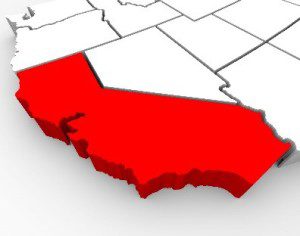What is WA's Marketplace Fairness? New Online Sales Tax Solution

For years, Washington State has been one of the states passing online sales tax legislation. From statutes expanding nexus (making more businesses responsible for the state's taxes and fees) to its five-point internet sales tax solution, the Evergreen State is quick to come up with more solutions to make the marketplace "fair."
The latest attempt to level the playing field makes some fairly aggressive changes in the state’s sales tax collection policy for marketplace facilitators.
While the state says it will make the marketplace more fair to brick and mortar retailers, we’d actually argue it’s a compliance burden and onerous on the seller. Why? The "solution" designates three additional definitions businesses will need to examine in order to determine how they apply if the definitions do apply, the business needs to pay close attention to another piece of legislation that may change again in the future.
An Overview: Marketplace Fairness
Here’s an overview of the new marketplace fairness solution.
Beginning in the New Year, "Certain marketplace facilitators, remote sellers, and referrers have new obligations related to the collection of sales or use taxes or the providing of notifications."Read more
Update on the CA Competes Tax Credit

As the mainstream media wonders where Amazon will locate its HQ2, many states are in the news touting their credits and incentives benefits to draw in company expansions. We thought it would be a good time to revisit the California Competes Tax Credit. As we’ve reported before, the credit has been available since January 2014 and isn’t scheduled to sunset until 2025. Every year, the state earmarks funds for the program of approximately $200 million, and companies compete for the funds during three application periods per year.
The CA Competes Tax Credit is an income tax credit available to companies who want to expand their business in CA. (They can be in state businesses expanding or businesses new to the state.) Companies that apply for this credit must submit applications to the state detailing increased investment in CA. Tax credit agreements are negotiated by GO-Biz and approved by a statutorily created “California Competes Tax Credit Committee.” The GO-Biz is a board consisting of representatives from the Governor’s office of Business and Economic Development. Not all companies requesting money receive it. There is a subjective process for allocating the funds annually.
New in the Online Sales Tax Realm: States & 3rd Party Sellers

If you've purchased from Amazon lately, you may have noticed they've started charging sales tax. However, many third-party merchants that sell through the website haven't been collecting it.
In fact, research shows that despite half of online sales happening through marketplaces (a number which is expected to grow to two-thirds within five years), these sellers don't collect sales tax - even if the retailer they work through does (such as Amazon).
States’ Efforts: Collecting Sales Tax From Third Party Sellers
Come December 1, it's expected the states involved in the amnesty program we've recently discussed will begin collecting sales tax from online merchants - including those that sell through a website like Amazon.
As the Seattle Times points out, this presents an important question: "Who will be responsible for collecting and remitting the taxes when someone buys something from a third-party seller on Amazon.com? Is that Amazon’s job or the merchant’s job, or some combination?"Read more
FOCUS ON KENTUCKY

This month we travel to the Bluegrass State of Kentucky. The nickname is based on the bluegrass found in many of its pastures due to its fertile soil. The state’s largest city, Louisville, is home to the Kentucky Derby, the renowned horse race held at Churchill Downs on the first Saturday in May.
The Red River Gorge is a canyon system on the Red River in east-central Kentucky. Geologically, it is part of the Pottsville Escarpment, a resistant sandstone belt of cliffs and steep sided, narrow crested valleys. The prevalence of sandstone allowed the Red River to cut a magnificent gorge through the mountains. It is a rock climber’s paradise and is some of the best natural area around!
Kentucky is a land with diverse environments and abundant resources, including the world’s longest cave system, Mammoth Cave National Park, the longest of navigable waterways and streams in the contiguous United States, and the two largest man-made lakes east of the Mississippi River.
Last Chance: Take Advantage of the Amnesty Program Now!

Are you still considering whether to take advantage of the current amnesty program? Designed as a way for online sellers to become compliant in states they may have created nexus (either intentionally or inadvertently), the voluntary program provides an opportunity for these businesses to come forward if they haven't been collecting income, franchise, use or sales tax.
The program originally was going to end on October 17. However, on October 11, the MTC voted to extend the application deadline to November 1. So contact us soon for help registering for this program!
How the Amnesty Program Works
Online marketplace and ecommerce sellers (particularly those using fulfillment services such as “Fulfillment by Amazon” or FBA) with outstanding sales and income tax liabilities use the Multistate Tax Commission’s Voluntary Disclosure Agreement to become tax compliant, and the participating states waive the fines and penalties for which sellers would generally be responsible. In several cases they are also waiving the tax itself!Read more
New: Online Sales Tax Bill Defeated in SD Supreme Court

If you’ve been following the online sales tax debate on our blog, you know South Dakota recently passed, “Senate Bill 106, allowing the state to collect taxes from sales made from online retailers – even if they don’t have nexus within South Dakota itself.”
The 2016 law mandated a sales tax collection responsibility from sellers grossing over $100,000 in sales to South Dakota customers, or transactions numbering more than 200 in a year – even if the seller has no physical presence or other connection with the state. Then NetChoice and the American Catalog Mailers Association sued the state, claiming the law violates Quill Corp. v. North Dakota, a ruling which established businesses need a physical presence in the state to be responsible for sales tax and fees.
Online Sales Tax Bill Ruled Unconstitutional
Unsurprisingly, South Dakota’s Supreme Court ruled Senate Bill 106 to be unconstitutional. Supreme Court Justice Glenn Severson stated, “We see no distinction between the collection obligations invalidated in Quill and those imposed by Senate Bill 106...and hold that the circuit court correctly applied the law when it granted sellers’ motion for summary judgment.”Read more
Reminder to CA Manufacturers: Sales Tax Exemption!

Remember when the California Manufacturing Sales Tax Exemption first came into fruition, on July 1, 2014? It seems like so long ago. But maybe it’s a good time to remind companies about this useful partial exemption available to manufacturing companies.
What exactly is this exemption?
It allows certain manufacturers and biotech companies to exempt a portion of California sales and use tax on purchases of qualified equipment used in manufacturing and R&D (research and development).
This exemption went into effect July 1, 2014 and applies to any sale, purchase, and lease of qualified tangible personal property on or after this date. The exemption was formerly set to sunset on July 1, 2022. However, the Governor of California recently signed Assembly Bill (A.B.) 398, which extends the exemption for manufacturing and research and development equipment to July 1, 2030. The bill has also expanded the exemption to include additional companies (see below).
Ongoing Amnesty Program: Act Soon!

Last month, we updated our readers on an ongoing amnesty program for state taxes that is currently taking effect. As this program could be helpful to sellers utilizing fulfillment marketplaces, we wanted to provide an update on this program so qualified companies can take advantage of the potential benefits of the amnesty.
What exactly is it?
Despite certain online sellers, like Amazon, volunteering to collect tax across the U.S., many online sellers are not collecting tax in states where they may have (intentionally or inadvertently) created nexus. Amnesty programs encourage companies to become compliant in a given state. This one is a grand-scale amnesty, covering many states.
The nexus committee of the Multistate Tax Commission (MTC) approved the MTC to participate in a multistate sales tax amnesty program for third-party sellers whose only nexus with a state is the use of fulfillment services offered by third-party marketplaces. The Multistate Voluntary Disclosure Program (MVDP) provides a way for a taxpayer with a potential tax liability in multiple states, to negotiate a settlement, using a uniform procedure.
How is Indiana Advocating for Online Sales Tax? With a Lawsuit

Every time we turn around, it seems there’s a new development in the online sales tax debate. As states continue to get involved and look for new ways to bolster their revenue, the issue continues to grow larger and more complex. Now Indiana is looking to the courts to settle the matter.
Indiana’s Online Sales Tax Lawsuit
On August 29, IndyStar reported that Indiana's Attorney General filed a lawsuit asking Marion Superior Court (in Indianapolis) to find the state's online sales tax law constitutional. " The law, which went into effect July 1, requires out-of-state businesses to collect and remit the same sales taxes as Indiana-based businesses."
This isn't the first lawsuit Indiana's online sales tax law, House Enrolled Act 1129, has been involved in. American Catalog Mailers Association and NetChoice argued the legislation was unconstitutional back in June.Read more
FOCUS ON MAINE

This month we travel all the way to the northeast corner of the country to the state with the rocky coastline and maritime history of Maine, the Pine Tree State.
Maine is the northeasternmost state in the contiguous United States. It is known for its jagged rocky coastline, low, rolling mountains, heavily forested interior, picturesque waterways, and its seafood cuisine, especially clams and lobster.
During the last ice age, the receding glacier left artifacts that we find interesting today- millennia later. Much of Maine’s geomorphology was created by extended glacial activity at the end of the last ice age. Prominent glacial features include Somes sound and Bubble Rock, both part of Acadia National Park on Mount Desert Island. Carved by glaciers, Somes sound is considered to be the only fjord on the eastern seaboard and reaches depths of 175 feet. The extreme depth and deep drop-off allow large ships to navigate almost the entire length of the sound. These features also have made it attractive for boat builders, such as the prestigious Hinkley Yachts.



















